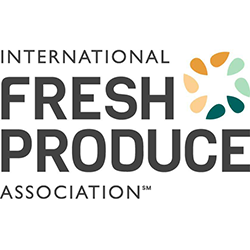ORLANDO, Fla. — Chef José Andrés believes in longer tables.
Speaking for almost an hour to more than 1,000 people at International Fresh Produce Association’s Global Produce & Floral Show, Andrés said food — handled in a better way — has the power to heal the body, the spirit and the community.
“You are going to be solving many of the problems we are facing where food is at the middle, and we need to say, food needs to stop being the problem,” Andrés told the produce industry. “And actually, food is going to be the solution.”
Twice named one of Time’s “100 Most Influential People” and awarded “Outstanding Chef” and “Humanitarian of the Year” by the James Beard Foundation, Andrés is an internationally recognized culinary innovator, New York Times bestselling author, educator, television personality, humanitarian and chef.
Andrés and his partner, Rob Wilder, formed ThinkFoodGroup, which created almost three dozen dining concepts in Washington, D.C., Las Vegas, Miami, the Bahamas, Orlando, New York City and Chicago — from food trucks to world-class tasting menus, including the two-Michelin-starred minibar by José Andrés in Washington, D.C.
He established World Central Kitchen in 2010 to feed the masses — using culinary training programs to empower communities and strengthen economies, as well as provide food disaster relief after natural disasters and other emergencies around the globe.
Since then, they've served nearly 4 million meals to the people of Puerto Rico following the devastation of Hurricane Maria and responded to dozens of worldwide disasters, distributing tens of millions of meals in the process.
“And in response to the pandemic that we've all just lived through, his organization has partnered with restaurants, small farms and community leaders around the country to try to combat food insecurity,” IFPA show emcee Michael Jackson said. Andrés is a naturalized U.S. citizen, originally from Spain, and is renowned as a tireless advocate for immigration reform.
Some of the inspiration for World Central Kitchen came from watching the horror of thousands of people sheltering in the Superdome, yet going hungry after Hurricane Katrina flooded New Orleans.
“They were in the arena without food and water. You know how far away are the main food warehouses of New Orleans from the arena — 0.4 miles! You and I could go walking, under the water, grab bags of food — fruits and vegetables — bring them to the arena and problem solved in 10 minutes,” he said.
“I began to realize that actually, even restaurant people like me, people like you, if we can come together, we could do, in the middle of the emergency, very well,” Andrés said.
Now, a dozen years after forming the global organization, the process is well organized, time-tested and proven.
During the ongoing Ukraine-Russia war, World Central Kitchen has set up kitchens at 48 border crossings, Andrés said.
“And we began making hot meals with 550 restaurants, almost half a million meals a day. But that was not enough,” Andrés said. “We had to increase. We got 40 warehouses, four of them will make vats of food. We began buying the food locally. Why? Because Ukraine produces a lot of food. Why do we need to bring the food from outside when I can buy locally? I'm not only helping feed the people in need, you restart and you keep the local economy going.”
The locals know best, he said.
So the workers began making bags of food, 30 pounds each, including fruits and vegetables. They then deliver those bags once a week in faraway little towns where there are no supermarkets, where there is no infrastructure, where there are no bridges.
In the U.S., the federal government and private sector need to come together to create a more organized food system, from farmer to restaurant to supermarket to home table, so that people can be healthier and happier, he said.
And the produce industry is integral to this goal, of course.
“We need to believe that we have, in our fingertips, the solutions. They have to include policy, technology, distribution, bringing cool ideas to create water out of nothing,” Andrés said. “We have so many chances to upside-down rethink the planet we live in through the food we eat.”

















